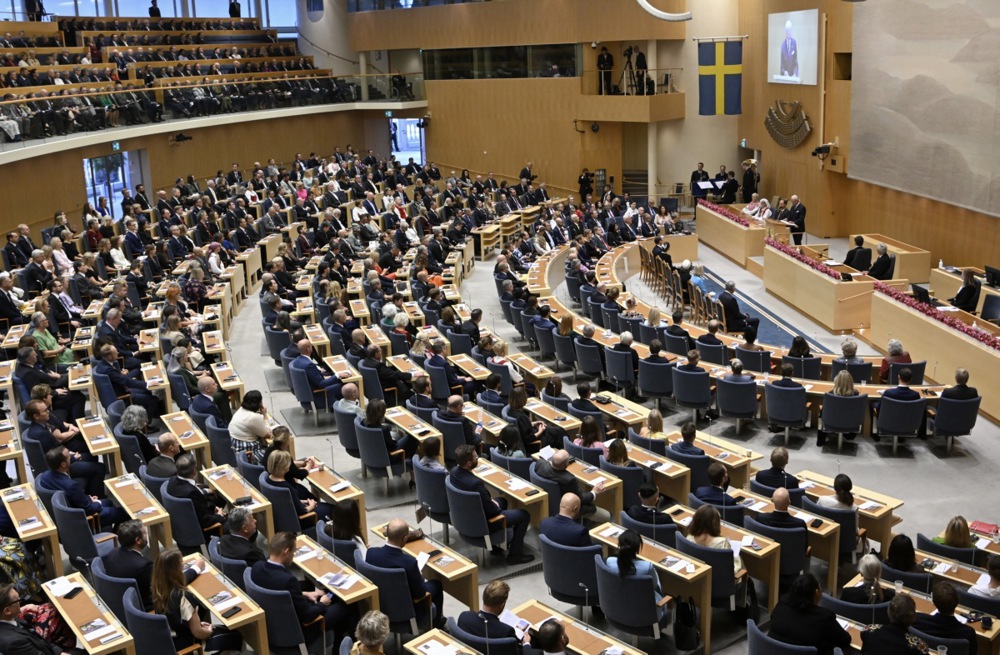UK politician and former Labour leader Jeremy Corbyn’s newly launched hard-left party, provisionally named Your Party, is already mired in controversy over antisemitism.
Launched in July 2025 with former Labour MP Zarah Sultana, the group aims to mobilise left-wing voters disillusioned with ruling party Labour’s centrist shift, advocating for wealth redistribution, nationalisation of public services and a strong pro-Palestinian stance.
The party’s early days, though, have been overshadowed by internal divisions and accusations of tolerating antisemitic rhetoric, echoing the issues that plagued Corbyn’s tenure as Labour leader.
Sultana sparked outrage by calling Corbyn’s past apology for antisemitism a “capitulation”.
She criticised the adoption of the International Holocaust Remembrance Alliance (IHRA) definition of antisemitism by Corbyn, which includes examples linking certain criticisms of Israel to antisemitic tropes and a warning not to describe Israel’s existence as a “racist endeavour”.
Speaking about Corbyn’s leadership of Labour, on August 17 Sultana told The New Left Review, a British journal: “I think we’re in a very different political moment. We have to build on the strengths of Corbynism – its energy, mass appeal and bold policy platform – and we also have to recognise its limitations.”
“It capitulated to the IHRA definition of antisemitism, which famously equates it with anti-Zionism and which even its lead author Kenneth Stern has now publicly criticised.”
She also called Israel a “genocidal apartheid State”.
Her remarks have reignited debates about the party’s stance on Israel and Palestine, with critics arguing that her comments downplayed the seriousness of the antisemitism allegation. They also drew condemnation from the Board of Deputies of British Jews who accused Sultana of a “grave insult” to the Jewish community and questioned her “wider commitment” to anti-racism.
“Those who seek to delegitimise and mis-define the IHRA definition in this way prove themselves to be no friend to the Jewish community and also call into question their wider commitment to anti-racism, the wellbeing of the Jewish community and social cohesion”, Andrew Gilbert, the vice-president of its board of deputies said.
The IHRA working definition of antisemitism (IHRA-WDA) has been adopted for internal use by a number of government and political institutions. The UK was the first country to accept the definition, on December 12, 2016, followed by Israel.
As of February 1, 2025, 1,266 entities worldwide have adopted the definition. Among those, 45 countries have done so, as has the European Union.
Sultana has a history of controversial statements, including past social media posts supporting “violent resistance” by Palestinians and calling Zionism a “racist ideology,” which has further fuelled accusations of antisemitism within the party’s ranks
Reports suggested Corbyn was “furious and bewildered” by Sultana’s premature announcement on behalf of the party, highlighting internal discord over leadership and direction.
While he has advocated an open leadership contest to align with the party’s grassroots ethos, Sultana appeared to favour a co-leadership model, raising questions about the party’s democratic credentials.
Your Party’s infighting has drawn mockery from Labour figures, with some comparing the its apparent disarray to the comedic spats in the film Monty Python’s Life of Brian.
Alex Hearn, the director of Labour Against Anti-Semitism, said: “Zarah Sultana has fundamentally misrepresented the IHRA definition of antisemitism. It is unsurprising that she opposes it, given her history.
“There should be no place in a mainstream political party for the likes of Ms Sultana, and it is surprising that the Labour Party tolerated her for so long.
“Hopefully she will remain on the fringes of politics for the remainder of her career, which is where her extremist views belong.”
Corbyn, expelled from Labour in 2020 after refusing to accept fully a report by the Equality and Human Rights Commission (EHRC) that found the party guilty of unlawful harassment and discrimination under his leadership, has long been a polarising figure.
The EHRC report claimed antisemitism complaints were mishandled during his time as Labour leader, with Corbyn insisting the issue was “dramatically overstated” for political reasons.
This refusal to fully acknowledge the findings led to his suspension and eventual expulsion, a move that alienated many of his supporters but was welcomed by Jewish groups that had accused him of allowing antisemitism to fester within Labour.
"I am anti-Semitic, I don’t give a damn!" — The daughter of two hard-left French MPs has been arrested for antisemitism and glorifying terrorism, and she appears to have no regrets. https://t.co/m91KCvkhUh
— Brussels Signal (@brusselssignal) January 18, 2024





